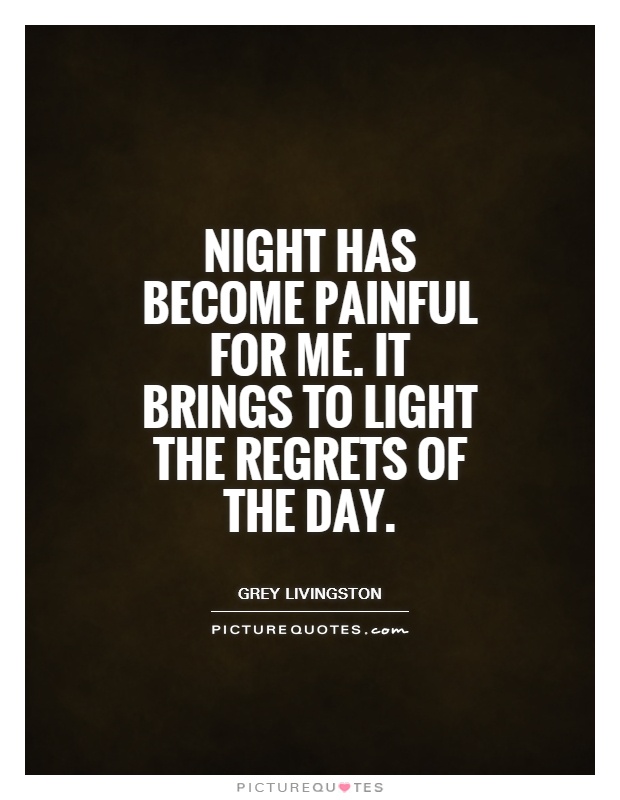Night has become painful for me. It brings to light the regrets of the day

Night has become painful for me. It brings to light the regrets of the day
Grey Livingston, a renowned poet and writer, once famously said, “Night has become painful for me. It brings to light the regrets of the day.” These words resonate with many individuals who find themselves grappling with their own inner demons and struggles as the day comes to a close.Livingston’s poignant statement captures the essence of the human experience, where the darkness of night serves as a stark reminder of the mistakes and missteps made during the day. For some, the night can be a time of reflection and introspection, where the weight of regrets and missed opportunities can feel overwhelming.
In the context of Grey Livingston, a writer known for his introspective and melancholic works, these words take on a deeper meaning. Livingston’s poetry often delves into themes of loss, longing, and regret, exploring the complexities of human emotions and the struggles we face in our daily lives. His words speak to the universal experience of grappling with our own shortcomings and the pain that comes with confronting our mistakes.
For Livingston, the night may have been a time of solitude and reflection, where he was forced to confront the regrets and sorrows that haunted him. The darkness of night can amplify these feelings, casting a shadow over our thoughts and emotions, making it difficult to find peace and solace.
However, despite the pain and regret that night may bring, it can also serve as a time of healing and growth. In the quiet stillness of the night, we have the opportunity to confront our demons, learn from our mistakes, and strive towards a better tomorrow. Livingston’s words remind us that while the night may be painful, it also offers a chance for redemption and renewal.












 Friendship Quotes
Friendship Quotes Love Quotes
Love Quotes Life Quotes
Life Quotes Funny Quotes
Funny Quotes Motivational Quotes
Motivational Quotes Inspirational Quotes
Inspirational Quotes